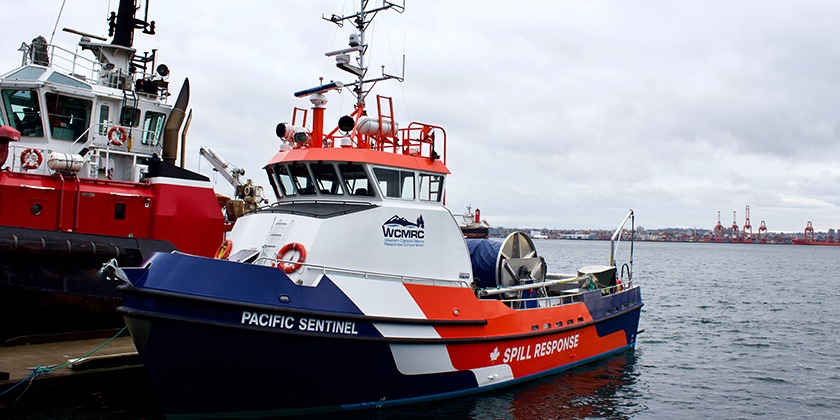Have Your Say—Potential New Regulations on Marine Emergency Services and Pollution Response.

Jan 7, 2025
By Mathew Channer
Transport Canada is calling for input from Canadians on proposed legislation to improve preparedness and response for marine incidents. New regulations are proposed in two areas, marine incident response to fires and disabled vessels, and pollution response. These proposed changes fall under Transport Canada’s Oceans Protection Plan, which focuses on environmental protection, partnerships with Indigenous communities, and marine incident prevention.
Marine Incident Response
While there are already stringent regulations in place to help prevent marine incidents, emergencies do still happen and can escalate quickly. There are many coastal areas in Canada where gaps exist in emergency response services. There are also areas of limited coverage, and areas where services are deployed more slowly. Transport Canada’s proposed legislation aims to create earlier intervention and more consistent and quicker responses to marine incidents.
The proposed legislation to enhance emergency response would require certain commercial vessels to have arrangements in place to access marine emergency services if there is an incident such as a fire or a disabled vessel.
In layman’s terms, the proposed changes will require certain types of vessels to arrange for access to emergency services as part of their emergency response plans, putting a greater responsibility on vessel’s to be prepared for possible gaps or limitations in emergency response. The regulations would start with a specific focus on marine firefighting and assistance for disabled vessels.
Marine Pollution Response
Proposed new legislation would require vessels with a shipboard response plan for hazardous substances to designate a shore-based response coordinator as part of their response plan. This coordinator would be an individual or organization that would implement a vessel’s pollution response plan if an incident occurred. This coordinator would require detailed knowledge of national and regional pollution contingency plans as well as the relevant legal requirements of implementing emergency pollution response.
Transportation of hazardous substances is an important part of Canada’s trade. While there are strict international and domestic regulations around the transport of hazardous materials, the volume and range of these substances is expected to increase, increasing the risk of a spill and subsequent environmental damage. The proposed legislation aims to create better coordination and more efficient pollution incident response.
Have Your Say
Transport Canada opened a general discussion board on these proposed legislative changes on October 2, 2024. Interested parties are invited to submit their opinion or response to the changes by email until the closing date of January 31, 2025.
To read more about the proposed changes, view the public discussion board and leave a comment for consideration,
go here.





























